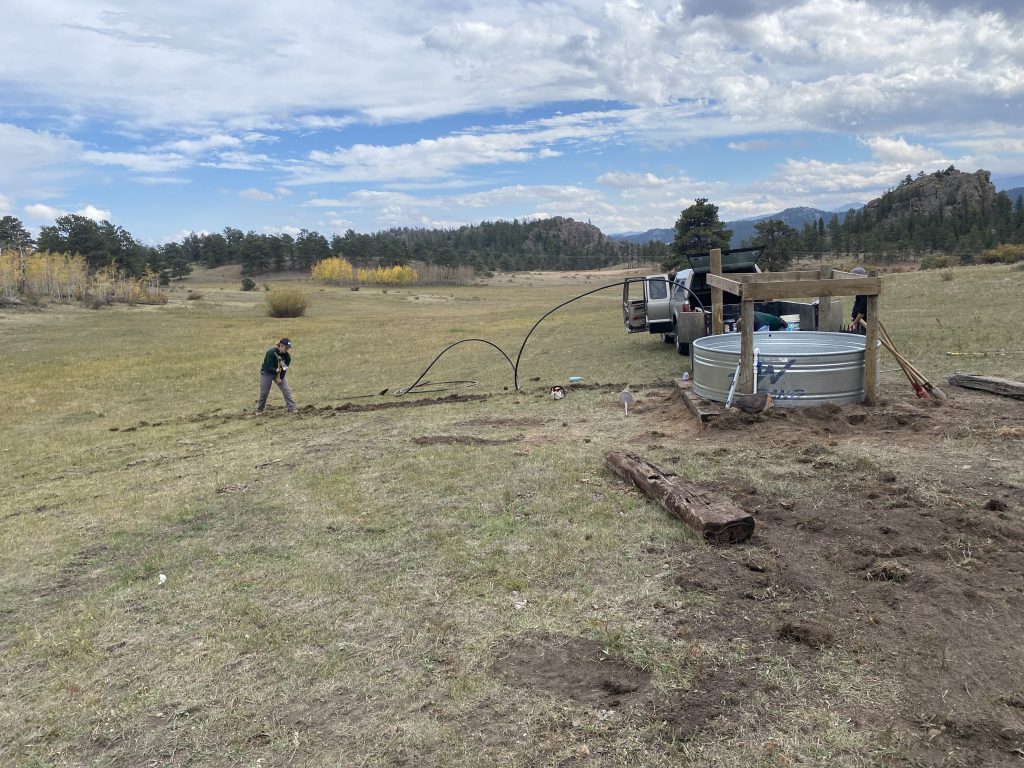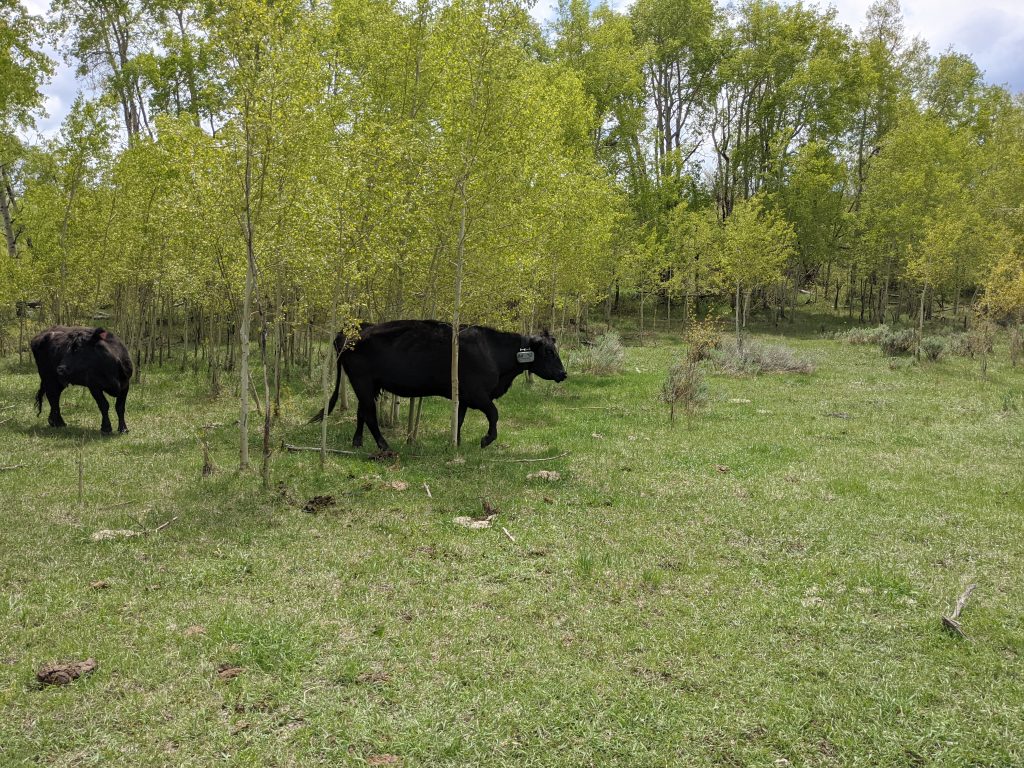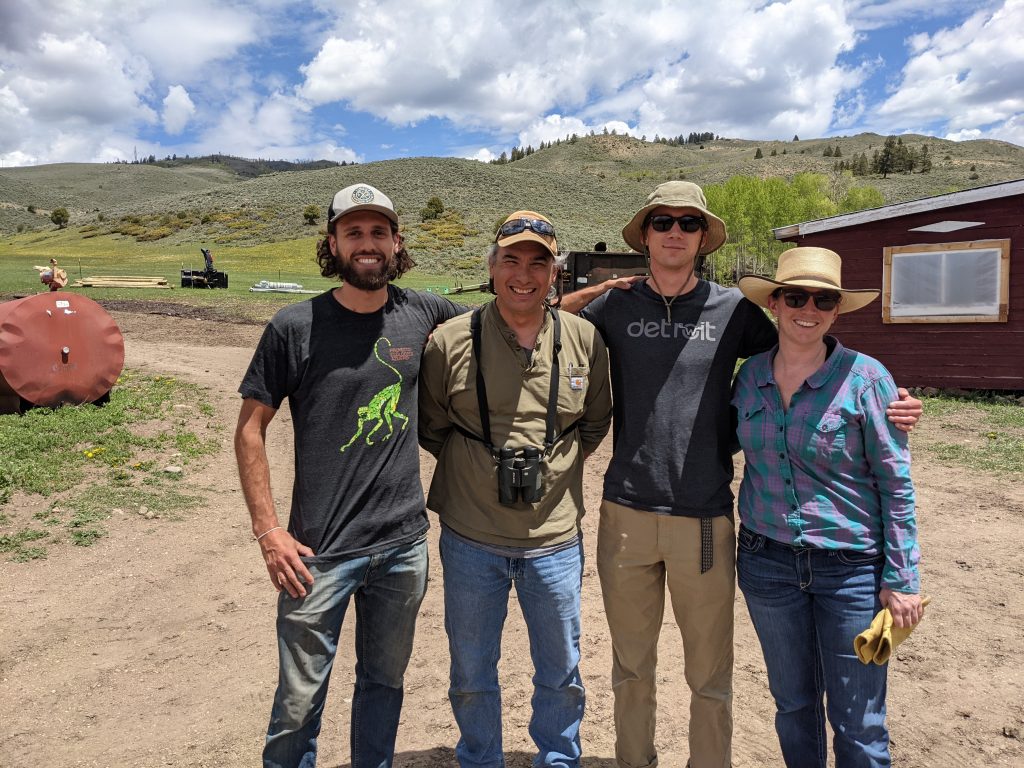Hands-on experience is critical for preparing future ranch workers and managers. In partnership with the CSU Extension Internship Program, we work with ranch partners to offer summer internship opportunities to students in the master’s program and to other students at CSU. While not required, we highly encourage our students to complete an internship or other ranching job while in the program. These internships are opportunities to learn necessary ranching skills through paid positions with partner ranches and stakeholders. Through internships, students will interawe work with ranch partners to offer summer internship opportunities to students in the master’s program and to other students at CSU. While not required, we highly encourage our students to complete an internship or other ranching job while in the program. These internships are opportunities to learn necessary ranching skills through paid positions with partner ranches and stakeholders. Through internships, students will interact daily with ranch workers, managers and owners allowing them to develop professional skillsets, networking opportunities, and ensure that ranching is a good fit for their personal and career goals. Without this immersion, it can be difficult for students to get the experience needed to secure and succeed at a ranching job.

Summer 2022 Internships

We are supporting two CSU Extension Internships in summer 2022. One intern will work with CSU faculty, Olivia Clark of CSU Extension, and the Fitch Ranch to support ranch operations and to research the economics of virtual fencing. The second internship is in partnership with the Trinchera Ranch and Annie Overlin of CSU Extension to support the ranch’s intensely-managed cattle grazing program and to test the potential of paired high-intensity short-duration grazing and soil amendments to manage cheatgrass. Both interns will be involved in the day-to-day operations of the host ranch, while also designing and implementing a research study to inform management.
Summer 2021 Internships
The Western Ranch Management Ecosystem Stewardship Program partnered with Olivia Clark of the CSU Extension Office in Grand County and the Fitch Ranch to offer two internships at the Fitch Ranch during the summer of 2021. Owned by Debbie Fitch and her family, the Fitch Ranch produces high-quality beef by “prioritizing land stewardship and the well-being of their animals”. The ranch runs cattle across their ranch and BLM and U.S. Forest Service grazing allotments. The 2020 East Troublesome Fire burned portions of their grazing lands and extensive lengths of their fenceline. Faced with the exorbitant cost required to rebuild their fences on their allotments, the Fitch ranch turned to virtual fencing as a more economical and flexible means to manage their herd, particularly in sensitive post-burn restoration areas. Two interns assisted with ranch operations and the deployment of the virtual fencing system.

Summer 2020 Internships
The Western Ranch Management and Ecosystem Stewardship Program partnered with Robin Young, the director of the CSU Extension office in Archuleta County and the Natural Resources and Agriculture agent for the region, on two paid apprenticeship opportunities during the summer of 2020 through the CSU Extension Internship Program and partner ranches. Each apprentice was involved in the day-to-day operations of the host ranch, while also being required to design and implement an applied research study. One apprentice received hands-on training for routine activities that included operating and caring for equipment, maintaining ranch infrastructure, planning of forest management strategies, and assisting in rearing of an endangered trout species. The apprentice researched aspen regeneration following a prescribed timber sale and the impacts on elk populations. The second apprenticeship involved assisting a new family business that uses goats to control invasive species and reduce fuel loads through selective grazing. The apprentice learned to apply concepts in business planning (i.e. market research, creating budgets, and networking), livestock management (i.e. goat herding and care), and land stewardship (i.e. native and non-native plant identification, inventory and management). The apprentice tested the viability of seeds following ruminant digestion. Their experience is highlighted in a short video produced by CSU Extension.
